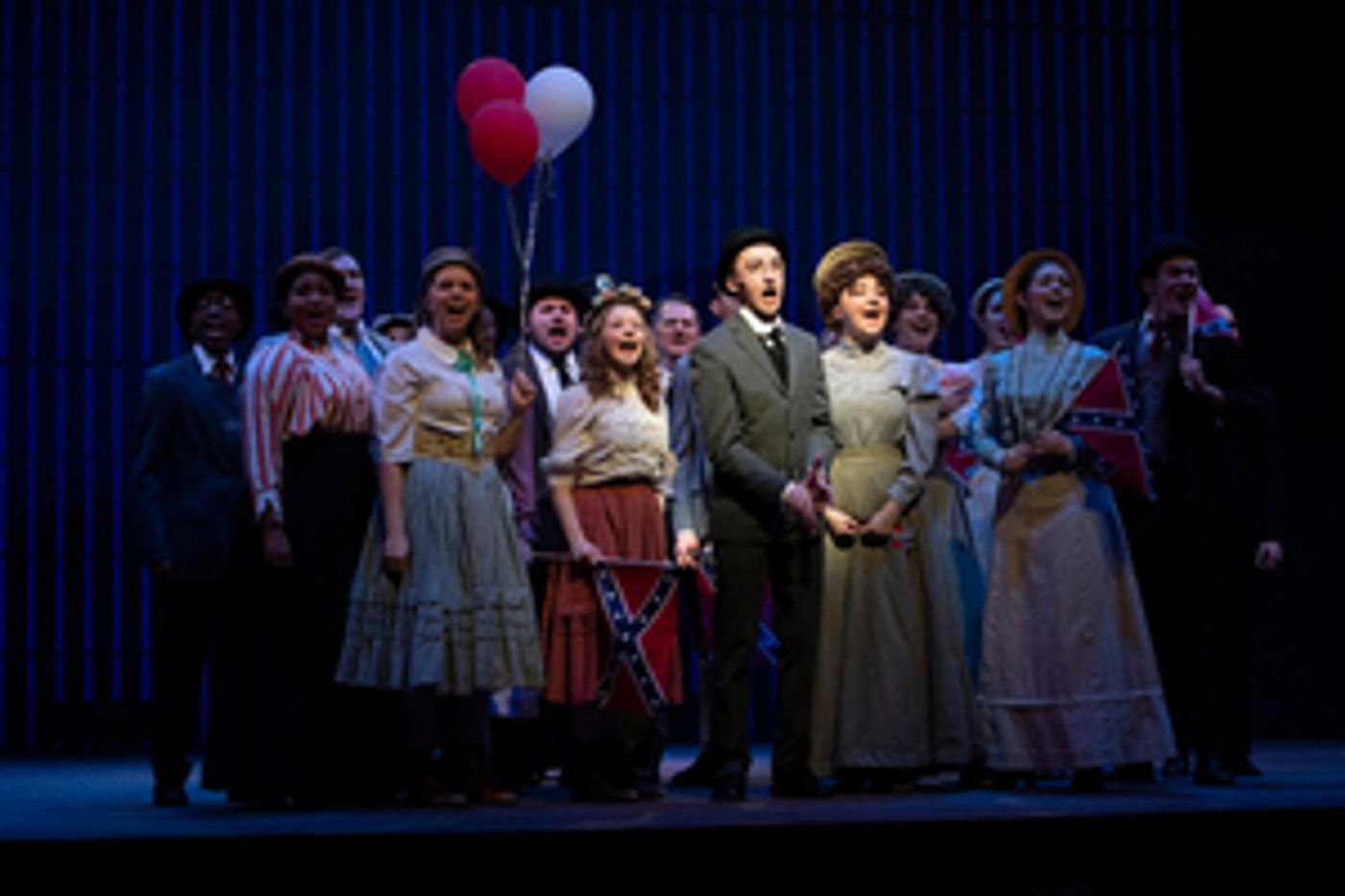Review: PARADE Showcases Southern Anti-Semitism and Political Corruption on Stage at Kent State

It is totally appropriate in this era of increased activity by White Supremist groups and rising anti-Semitism, that Kent State University's Musical Theatre program stage "PARADE," with book by Alfred Uhry and music and lyrics by Jason Robert Brown.
The musical dramatizes the 1913 trial of Jewish factory manager Leo Frank, who was accused and convicted of raping and murdering a thirteen-year-old employee, Mary Phagan. The trial, sensationalized by the media, spotlighted anti-Semitic tensions in Georgia.
When Frank's death sentence was commuted to life in prison by the departing Georgia governor, due to his exposing problems with the trial, Frank was transferred to a prison in Miledgeville, Georgia, where a lynch party seized him.
Frank was taken to Phagan's hometown of Marietta, where he was hanged from an oak tree.
The events surrounding the investigation and trial led to two groups emerging: the revival of the defunct KKK and the birth of the Jewish Civil Rights organization, the Anti-Defamation League (ADL).
Ironically, even after the revelation of lying, witness tampering, and Franks' lynching, it was not until 1986 that the state of Georgia posthumously declared him innocent.
The script was crafted by Jason Robert Brown and Alfred Uhry, both Southern Jews. Ironically, Uhry's great-uncle owned the pencil factory run by Leo Frank, which is the lynch pin of the story.
The Broadway production won Tony Awards for both the book and the musical score. The story, much like Uhry's "DRIVING MISS DAISY," illuminates not only his keen story-telling ability, but his knowledge of the South and its long history of anti-Semitism.
The music is very much in the vein of Brown's trademark rhythmically dynamic and harmonically unconventional melodic style and contains pop-rock, folk rhythm and blues and gospel music.
The emotionally charged play, which is based on a tale which normally wouldn't be considered ideal for a musical, highlights political corruption and ambition, highlighted by the corrupt prosecutor, Hugh Dorsey, who later became the governor of Georgia and a judge, and anti-Semitic Tom Watson (later elected a U.S. senator).
The KSU production, under the direction of Fabio Polanco, who was recognized as best actor of 2019 by Broadway World for his astonishing performance in Porthouse Theatre's "MAN OF LAMANCHA," clearly develops the story line.
Polanco's program notes state that his goal for the production "is to show how art can lead spectators to think, question and learn about the social conditions exhibited in the work, and consider parallels between the past and the present and engage in civic discourse."
The production is slowly paced, with special care to highlight the angst, corruption and Southern manners traditionally stressed. Though the cast varies greatly in their southern drawls and accents, there is little variance from highlighting the play's southern setting, with a southern belle floating through many of the scenes to illustrate that, in spite of the Civil War, the "old" south still exists.
KSU Freshman Matthew Hommel shines as the high strung, obsessive Leo Frank. His fine singing voice and riveting stage presence bode well for his theatrical future.
Devin Pfeiffer is slick and smarmy as over-zealous, politically motivated Hugh Dorsey. Terence Cranendonk displays a nice singing voice as governor John Slaton.
Though some of the choral sounds were not well-blended, the cast generally displayed strong singing voices. Jonathan Swoboda's orchestra did a nice job of not only playing the difficult music well, but underscored the cast, thus allowing for the important words of the vocals to be easily heard.
Tamara Honesty's scenic design, as well as Caleb Stoller's sound design and Sierra Walker's lighting all worked to enhance the production. The costumes, unfortunately, were not consistently era correct. The choreography was often static and uncreative and not always well-performed.
CAPSULE JUDGMENT: "Parade" tells a wrenching tale of hate and corruption that highlights the worst in people. It is told in a well-conceived story with strong musical messages. The KSU production is a solid college production.
"PARADE" is scheduled to run at Kent State University through March 1, 2020. For tickets and information call 330-672-ARTS or go to www.kent.ed/theatredance.com
Reader Reviews
Videos

